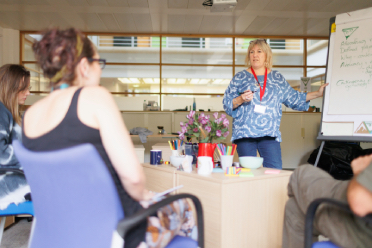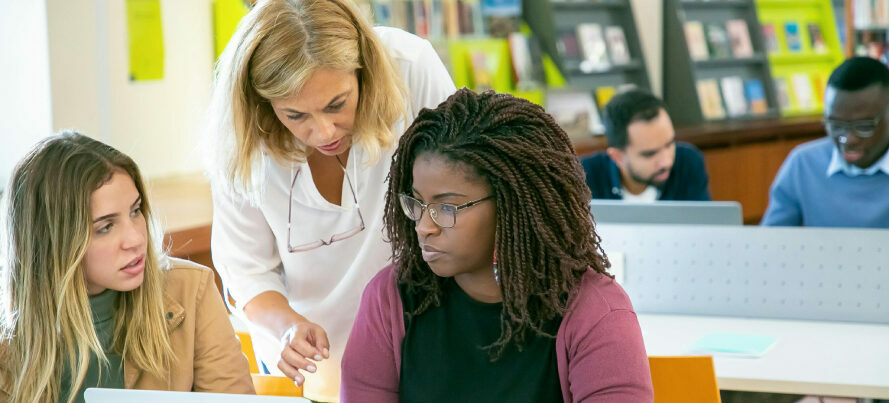Women’s solidarity on college campuses has grown into a powerful movement with many topics and actions. This movement changes academia and society. Women’s solidarity in academic institutions is essential and takes many forms, as this article shows.
Understanding the Landscape of Women’s Solidarity
Campus women’s unity is multifaceted. Support systems, rights, and an inclusive environment are fostered here. This solidarity stems from the belief that women working together can transform policy and culture. In a world where women, especially academically, confront specific hurdles and barriers, this knowledge is vital. Solidarity builds community and gives unheard voices a chance to be heard.
The Role of Student Organisations
Campus women’s solidarity relies on student organizations. These groups foster conversation, activism, and support, as well as socialization. These groups raise awareness of academic challenges affecting women by hosting seminars, workshops, and awareness campaigns. These events inspire change by giving kids a chance to learn, engage, and comprehend gender problems. They also build community, allowing students to meet others with similar struggles.

Mentorship and Networking
Campus mentoring initiatives are essential in bridging the gap between students and the workforce, providing career guidance, coaching, and moral support. By connecting students with experienced professionals and alumni, these programs foster both professional and personal relationships.
While these programs are beneficial, students often face challenges that require additional support beyond what is available on campus. In such cases, they might turn to web resources and writing services for assistance. Students must verify the legitimacy of these services. You can read the paperhelp reviews. Conducting thorough research and understanding the credibility of online educational tools is vital in making informed decisions.
Addressing Key Issues
The solidarity movement on campuses actively addresses several key issues, including gender discrimination, sexual harassment, and mental health. Each of these areas is approached with a unique blend of advocacy, education, and support, acknowledging that the challenges in each domain require specialized attention and strategies.
Combating Gender Discrimination
Multifaceted approaches are needed to combat academic gender prejudice. Workshops on bias are crucial for fostering an inclusive academic environment. Academic and extracurricular fairness policies are also crucial for equality. To handle prejudice properly, outlets for reporting and addressing issues are essential. All of these initiatives make college life safer and fairer for women.
Preventing Sexual Harassment
Sexual harassment prevention is a top campus priority. Comprehensive sexual harassment awareness programs educate the university community about its effects. These activities also require transparent reporting and victim support. These rules and programs attempt to make campus life safe and respectful and address harassment immediately.
Promoting Mental Health and Well-Being


Many efforts support women in academic settings due to their particular mental health challenges. Counseling, peer support, stress management, and emotional well-being workshops are offered. These programs recognize the role of mental health in academic performance and well-being and give women the tools they need to succeed academically and emotionally.
Empowering through Education
Women’s solidarity initiatives are based on education empowerment.
Education gives women the skills they need to succeed in school and work. Workshops and seminars in leadership, public speaking, and negotiation supplement academic learning in these programs. These abilities are essential for personal and professional growth.
Leadership and Skill Development
Women-specific academic support and scholarships play a vital role in leveling the educational playing field. These initiatives are significant as they recognize and aim to overcome the financial and societal barriers that often hinder women’s access to higher education. By providing scholarships, these programs make education more accessible, ensuring that financial constraints do not impede academic aspirations.
In the pursuit of academic excellence, it’s essential to explore all available resources. However, while seeking assistance, caution is necessary to avoid falling into traps. If you’re struggling with studying, consider referring to a writing service.
But remember to do your due diligence: just Google “is papersowl.com good” to learn about its credibility and other essential factors before making a decision. This approach ensures you make informed choices in your educational journey.
Academic Support and Scholarships
Women-specific academic support and scholarships help level the educational playing field. These programs acknowledge financial and societal impediments to higher education for women and provide scholarships to make education accessible.
Tutoring, mentorship, and resource centers help women achieve academically. These measures are crucial to academic inclusivity and equity.
Community Engagement and Advocacy
Through advocacy and community engagement, women’s solidarity movements reach beyond campus. These efforts incorporate local organisation collaboration, policymaking, and communication to influence society.


Collaboration with Local Organisations
Campus activities can reach more people by engaging with local NGOs and women’s groups. Community service projects, awareness campaigns, and support programs are joined in these collaborations. Partnerships boost project effectiveness and encourage student social responsibility and civic engagement.
Policy Advocacy
These movements also need policy advocacy. Faculty, alums, and students affect women’s rights and welfare legislation and policies. Lobbying, public hearings, and policymaker collaboration are examples. Through lobbying, women’s concerns and interests are represented in policymaking, resulting in better informed and equitable outcomes.
Digital Platforms for Resources and Support
In today’s digital age, women have access to a plethora of resources online. Alongside tools and support for empowerment, these platforms also provide insights into diverse fields, including tips on game localization. These resources serve not only for reporting difficulties and accessing educational content but also for broadening knowledge in areas like game localization, thus facilitating personal and professional growth.
Conclusion: The Way Forward
The university women’s solidarity movement drives social change. These initiatives make academia more fair and just as they grow. It supports a more inclusive society. These movements must expand and be supported to sustain and build on progress, resulting in enduring change.
You may also enjoy exploring inspiring stories in our women to watch section.




